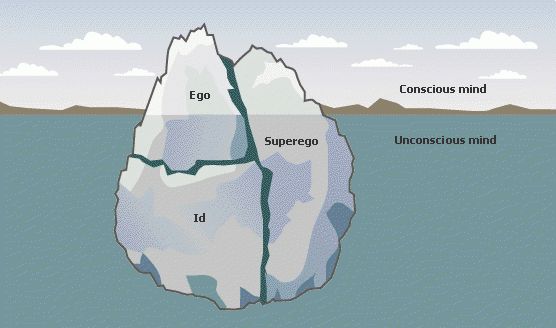
According to Freud's theory, certain aspects of personality are more dominant than others and might make you act upon your most basic urges. Moreover, these components add to one’s personality in different ways. Together, these three components create complex human behaviors. According to Sigmund Freud, the human personality consists of three parts: id, ego, and superego. These aspects are not permanent and can be balanced by taking care of the factors influencing it.Human personality is complex and consists of various layers. To carry a good personality all these three main aspects of the mind are necessary. ID, EGO, SuperEgo are the three main parts of our mind that controls our behavior. Personality: Guilt-ridden or sanctimonious If, as an adult, our Superego is too dominant?.Personality: Distant, rational, efficient, unemotional, cold If, as an adult, our Ego is too dominant?.Personality: Very self-absorbed, don’t care about others, only out for yourself If, as an adult, our ID is too dominant?.As development proceeds super-ego also takes on the influence of those who have stepped into the place of parents, educators, teachers, people chosen as ideal models. This part develops based on parent’s guidance and influence. Superego starts to emerge around the age of five. The society in which we live, how our demands are fulfilled and repeating behavior of the surrounding people are main factors influencing the EGO. This is the part of id which has been modified by the direct influence of the external world. It begins to develop during the first three years of a child's life.
/illo_id-ego-superego-599dc5e3c41244001354e25f.png)
It helps us fit into society by getting us to act in socially acceptable ways. The super-ego controls our sense of right and wrong and guilt. The super-ego strives to act in a socially appropriate manner, whereas the id just wants instant self-gratification. The super-ego works in contradiction to the id. It strives to be socially acceptable, appropriate and well mannered. This is concerned with good morals, and works to counter primal instincts and urges. This is unconscious part of the mind that acts as our conscience. It helps us to organize our thoughts and make sense of them and the world around us.Īn example would be to resist the strong desire of grabbing other people's belongings and buy them instead. This aspect of mind battles against the Id and Superego with reason, logic, and rationale.
/the-id-ego-and-superego-2795951_round2-15c24a2151b747a0932cc24ab7c26ebf.png)

It decides what action to take for positive means and what to do based on what is believed is the right thing to do. It’s the balance between id and superego, and is responsible for other psycho-dynamic features like defense mechanisms.

It works according to the reality principle it seeks to please the ID without causing trouble or long term grief. If the mind is solely guided by the id, individuals would find it difficult to wait patiently at a restaurant, while feeling hungry, and would most likely grab food off of neighboring tables.įor example, when a baby is screaming because they are tired, they do not know why they are screaming they just know they want a solution to the problem and they want it now. ID is the only component of personality that is present from birth. It seeks only pleasure without pain, and is essentially your “shoulder devil”. It acts according to the pleasure principle and simply wants everything now. Personality Influencing Factors 1.1 ID - Meeting Basic Needs Likewise, the Ego battles with reason against the unreasonable demands of both the Id and the Superego. The Ego and Superego battle to keep the Id in check. Note that the ID exists exclusively in the unconscious.


 0 kommentar(er)
0 kommentar(er)
